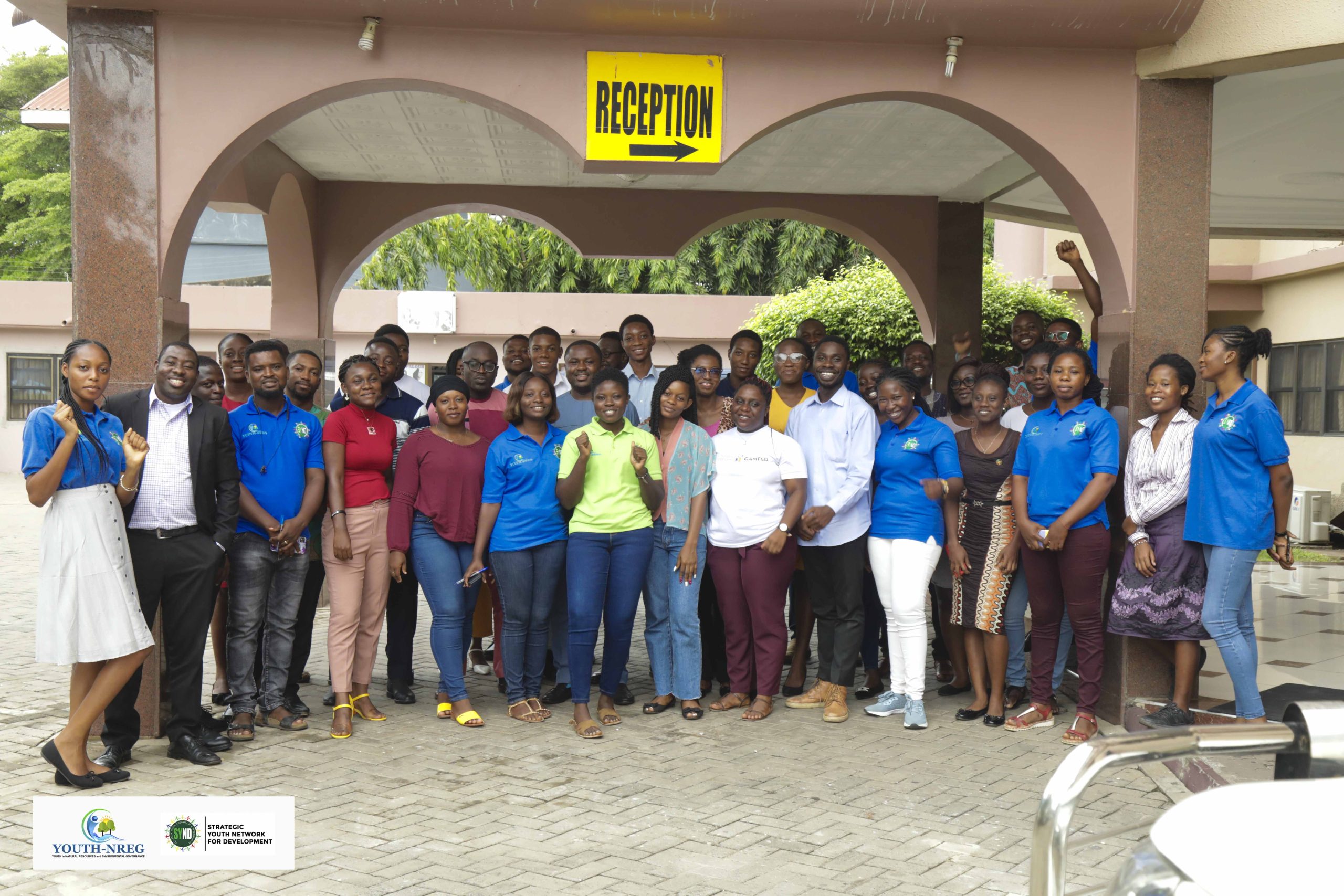
Group picture of Participants
Story by: Ishmael Barfi
In a recent youth inception meeting for the Youth in climate action at the local level, Mr. Solomon Yamoah, the head of partnership and relations at the Strategic Youth Network for Development (SYND) Ghana, emphasized the indispensable role of youth engagement in driving impactful change at the national level.
The event brought together representatives from the National Development planning commission and the Ga East Municipal Assembly to shed more light on the local governance structure, its legislations and entry points for young people to engage with their local Assemblies and the significance of young people as relevant actors in decisions making processes.
During the inception meeting, Mr. Yamoah highlighted how the active participation of young individuals in the implementation of local assemblies’ plans can have far-reaching effects on medium-term action plans.
Recognizing the potential of collaboration between youth and district assemblies, he emphasized that policies and policy inputs primarily originate at the district level, making it crucial to involve youth in all district activities.

A participant sharing her views
The primary objective of the inception meeting was to train young people to effectively engage their local assemblies in the mainstreaming and implementation of climate policies in the MDTPs to achieve climate actions at the local level.
By doing so, young people can better comprehend local assembly actions and contribute meaningfully through appropriate channels to influence national climate agendas.
Mr. Mubeen Mohammed, a Senior Development Planning Officer at the Ga East Municipal Assembly, also addressed the gathering, shedding light on the roles, challenges, and participation of youth within local assembly structures.

One of the facilitators speaking at the Inception Meeting
He emphasized that local assemblies which include districts, municipalities, and metropolitans with their sectors, departments and agencies operate under the Local Government Act 462.
Mohammed stressed that youth, regardless of their educational background, are legally recognized and should be actively involved in the planning processes outlined in the Constitution and the Decentralization program.
He highlighted the need for swift attention to letters by addressing them to the Municipal Chief Executive, while ensuring awareness of the matter at hand and identifying the relevant department head for effective follow-up and coordination.
Furthermore, Mohammed acknowledged the State’s role in championing effective youth participation in climate action policies at the local assembly level. In highlighting various platforms for youth engagement, Mohammed mentioned the Disaster Management Committee, Planning Committee, Municipal Planning and Coordinating Unit, Clean Up Ghana Mobile Application, My Flood Risk Mobile Application, Public hearings on the Mid-Term Development Plan, Town Hall Meetings, and Mid-year Stakeholder Review Meetings.

Youth Engagement Crucial for Promoting Climate Action- SYND Emphasizes
The inception meeting concluded with a call for active participation from the youth in decision-making processes, including voting, engaging in civic activities, and participating in initiatives such as tree planting campaigns.
Mohammed also encouraged youth to acquire knowledge and skills related to climate change, network with district officers, and seize opportunities that arise.
Youth’s involvement and commitment to addressing climate change at the district level hold immense potential for driving impactful change at the national level. By harnessing their skills and energy, young people can contribute significantly to shaping climate action strategies and ensuring a sustainable future for Ghana by actively engaging with local structures and functions.
The youth can influence policy implementation, foster environmental stewardship, and propel the nation towards a greener, more resilient future.
Source: www.thenewindependentonline.com








